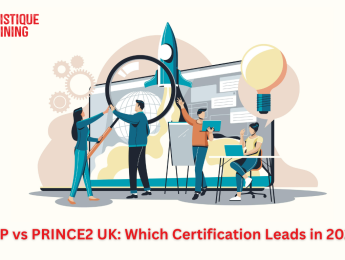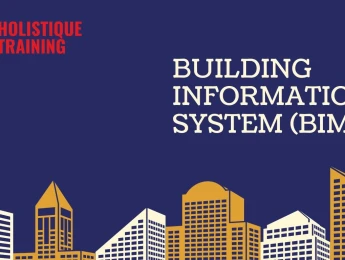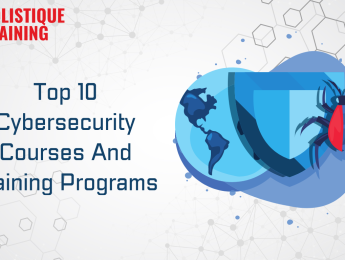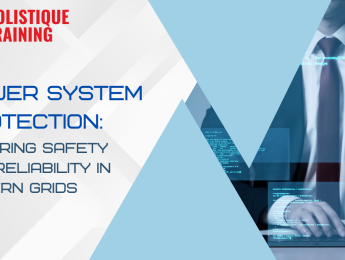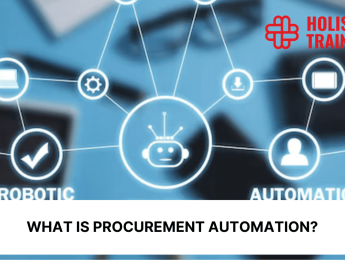- Table of Contents
- 1. Introduction:
- 2. The UK Project Management Landscape
- Reliance on Structured Project Management
- Key UK Bodies and Standards
- Strategic Drivers: Brexit, Infrastructure & Sustainability
- 3. Overview of PMP and PRINCE2 Frameworks
- PMP (Project Management Professional)
- PRINCE2 (Projects IN Controlled Environments)
- Philosophical Contrast & Coexistence
- 4. Key Methodological Differences
- Governance vs. Flexibility
- Approach: Descriptive vs. Prescriptive
- Project Lifecycle & Processes
- Documentation & Roles
- Comparative Table
- 5. Industry Recognition and Career Value in the UK
- PRINCE2’s Stronghold in UK Public Sector
- PMP’s Appeal in Multinational / Global Environments
- Job Posting Trends
- Employer Examples
- Recruiter & Trend Insights
- 6. Certification Process, Costs, and Difficulty
- PRINCE2 Certification
- PMP Certification
- Agile & Hybrid Paths
- 7. Practical Application in Real UK Projects
- PRINCE2 in UK Public Sector & Government
- PMP in UK Multinational / Private Sector
- Tool Integration
- Hybrid Use Examples
- 8. Salary Impact, Career Progression, and ROI
- Salary Benchmarks
- Career Progression & Roles
- Return on Investment (ROI)**
- Table: Approximate Salary Bands & ROI Considerations
- 9. Future Trends: Agile Integration and Digital Transformation
- Growth of Agile / Hybrid Models
- AI, Automation & Remote Collaboration
- Certification Evolution & Updates
- The Role of Lifelong Learning
- 10. Conclusion: Which Certification Is Right for You?
- Guidance Based on Your Goals
1. Introduction:
In an era of accelerating digital transformation, infrastructure renewal, and public-sector reform, organisations across the UK are increasingly relying on robust project management capabilities. Whether in healthcare, transport, IT, or construction, projects deliver strategic change—and stakeholders demand consistent, repeatable methods. To meet this demand, certified project management professionals are highly prized.
Among the many certifications available worldwide, two stand out prominently in the UK context: PMP (Project Management Professional), administered by the Project Management Institute (PMI), and PRINCE2 (Projects IN Controlled Environments), which originates in and remains strongly embedded within UK public-sector practice. Each brings its philosophy, structure, and market perception.
This article asks a crucial question for UK-based professionals: Which of these certifications holds greater value for your career path in the UK? We’ll examine both, compare them across multiple dimensions, and draw a conclusion suited to UK industry and public sector realities.
At stake is more than a credential. In the UK today, project management is tightly interwoven with innovation, governance, accountability, and digital transformation. Organisations expect project leads not only to deliver on time and budget, but to manage risk, ensure value, drive change, and adapt in fast-moving environments. In that landscape, the right certification can signal credibility, open doors, and accelerate career progression.
2. The UK Project Management Landscape
To understand the significance of PMP and PRINCE2 in the UK, we must first examine how project management is positioned in the national context: which sectors rely heavily on projects, which bodies govern or influence standards, and how recent shifts (Brexit, infrastructure priorities, sustainability) are influencing demand.
Reliance on Structured Project Management
In the UK, structured project management is critical across multiple sectors:
- Construction & Infrastructure: Large-scale programmes (rail, roads, power) demand strict governance, risk control, and regulatory compliance.
- Public Sector & Government: Ministries, NHS, local authorities deliver transformation programmes, digital services, and capital works under public accountability.
- Information Technology & Digital: The shift to cloud, data analytics, and government services’ digitisation drives many projects with tight dependency networks.
- Energy & Utilities / Environment: Renewables, grid upgrades, decarbonisation programmes require cross-disciplinary coordination and long-term planning.
Because of the scale and complexity, these sectors favour standardised methods, governance mechanisms, and credentials that confer trust in a candidate’s ability to navigate risk, stakeholder complexity, and compliance.
Key UK Bodies and Standards
Several organisations and frameworks shape how project management is recognised in the UK:
- AXELOS: Oversees ownership of PRINCE2, PRINCE2 Agile, and related methodologies (e.g., ITIL).
- Association for Project Management (APM): A UK-based professional body advocating for project professionalism, offering its own certifications and standards.
- PMI UK Chapter: The local branch of PMI, promoting the PMP credential, networking, conferences, and knowledge-sharing within the UK.
- Infrastructure and Projects Authority (IPA) (government institution): Sets frameworks and assurance for major government projects, often favouring methods aligned with PRINCE2 or hybrid governance.
Strategic Drivers: Brexit, Infrastructure & Sustainability
Recent trends further push demand for certified project managers:
- Post-Brexit Projects: New trade, regulatory, and infrastructure adjustments require complex programmes involving multiple government agencies.
- Major Infrastructure Plans: Initiatives such as HS2, large-scale housing, transport decarbonisation, and energy transition heighten the need for disciplined project leadership.
- Net Zero & Sustainability Goals: Environmental programmes, carbon reduction, and green infrastructure add complexity to planning, procurement, and stakeholder management.
- Public Accountability & Value for Money: In public-sector programmes, failures attract scrutiny; certifications help reassure regulators and auditors.
On the global stage, the demand for project professionals is also rising. PMI forecasts that the global economy will require roughly 25 million new project professionals by 2030, or about 2.3 million annually, to close the talent shortfall.
Such data underscores that certification-driven professionals will play a critical role in filling that gap—and UK professionals are well placed to benefit.
3. Overview of PMP and PRINCE2 Frameworks
In this section, we define both certifications, explain their origins and philosophies, and discuss how both frameworks find relevance in UK organisations.
PMP (Project Management Professional)
- Origin & Governance: Owned by PMI (based in the U.S.), the PMP credential is globally recognised and maps to PMI’s PMBOK (Project Management Body of Knowledge).
- Approach & Focus: PMP emphasizes knowledge domains (e.g., scope, schedule, cost, risk, quality, stakeholder, integration) and develops leadership, strategic, and technical competencies. The framework is more descriptive: it describes what good project management means but does not prescribe exactly how to do each step.
- Philosophy: The PMP mindset is flexible—adapting processes and tools to project contexts while leveraging a broad knowledge base, stakeholder influence, and continuous improvement.
- Certification Reach: Because it is globally recognised, PMP is often seen as a strong credential for professionals operating in multi-national environments or on global programmes.
PRINCE2 (Projects IN Controlled Environments)
- Origin & Governance: Developed in the UK, PRINCE2 is maintained by AXELOS. It is closely associated with public-sector practices in the UK and many Commonwealth countries.
- Approach & Focus: PRINCE2 is prescriptive and process-oriented. It defines 7 principles, 7 themes, and 7 processes to govern and manage projects. It is designed to be adapted to environments but strongly emphasizes structured control, defined roles, and documentation.
- Philosophy: PRINCE2 emphasizes control, governance, stage-based delivery, and clarity in roles and responsibilities.
- Certifications: Commonly delivered in Foundation and Practitioner levels, with variants like PRINCE2 Agile blending agile methods.
Philosophical Contrast & Coexistence
- PMP = results through adaptability and leadership. It gives you broad knowledge and flexible tools to manage uncertainty.
- PRINCE2 = results through governance and standardisation. It gives you a regulated, defined path and governance framework.
In practice, many UK organisations adopt both: using PRINCE2 for governance and stage-control, while relying on PMP/PMBOK tools and leadership methods in execution. This coexistence makes both certifications relevant in UK settings, rather than mutually exclusive.
4. Key Methodological Differences
To make a clear comparison, here we explore the major methodological contrasts, including governance, approach, lifecycle, documentation, and roles. A comparative table follows.
Governance vs. Flexibility
- PRINCE2 enforces strict governance by requiring defined roles (e.g. Project Board, Executive, Team Manager), stage boundaries, and exception management. The project board has formal decision gates.
- PMP allows more flexibility: project managers use judgment based on context (size, risk, complexity). It encourages tailoring and situational adaptation rather than forcing strict gate procedures.
Approach: Descriptive vs. Prescriptive
- PMP/PMBOK is descriptive (or “knowledge-based”): it catalogues best practices, knowledge areas, and process groups without prescribing exactly how an organisation must implement them.
- PRINCE2 is prescriptive (or “process-driven”): it prescribes a framework — which themes, principles, and processes to use. The method encourages tailoring, but within a guided structure.
Project Lifecycle & Processes
PMP organizes work via five process groups:
- Initiating
- Planning
- Executing
- Monitoring & Controlling
- Closing
These groups map to the ten knowledge areas (scope, time, cost, quality, risk, procurement, communication, resource, stakeholder, integration).
PRINCE2 defines seven processes:
- Starting up a Project
- Directing a Project
- Initiating a Project
- Controlling a Stage
- Managing Product Delivery
- Managing Stage Boundaries
- Closing a Project
Additionally, themes (e.g. business case, risk, change, planning) are woven through these processes.
Documentation & Roles
- PRINCE2 places a heavy emphasis on documentation (e.g. Business Case, Quality Register, Risk Log, Issue Register) and strict role definitions with accountabilities. It ensures auditability and clarity of responsibilities.
- PMP emphasises stakeholder engagement, leadership, communication, and adaptive control, with documentation tailored to project needs. It treats documentation as an enabler, not an end.
Comparative Table
Aspect | PMP (PMI / PMBOK) | PRINCE2 |
Method Type | Descriptive, knowledge-based | Prescriptive, process-driven |
Governance | Flexible, context-based control | Formal governance, exception handling, stage gates |
Lifecycle Structure | 5 Process Groups + 10 Knowledge Areas | 7 Processes + 7 Themes + 7 Principles |
Role Definition | Flexible roles, often decided by organisation | Explicit roles (Board, Executive, Team Lead, etc.) |
Documentation | Tailored to need, adaptable | Standard templates and required documents |
Certification Reach | Global, multi-industry | UK / Commonwealth strong presence, especially in public sector |
Flexibility vs Control | High adaptability | Strong control and standardisation |
This table helps visualise how differently each approach is constructed—and where their strengths lie.
5. Industry Recognition and Career Value in the UK
A major factor in choosing a certification is how it is perceived by employers, and how often it appears in UK job postings. In this section, we examine which certification is more recognised in the public vs. private sectors, and what trends you can observe in the UK jobs market.
PRINCE2’s Stronghold in UK Public Sector
Due to its British lineage and orientation to governance, PRINCE2 is often the default standard for UK government and public contracts. Many public sector programmes — from local authorities and NHS transformations to HMRC digital projects — prefer or mandate PRINCE2-based governance frameworks. In fact, government bodies often embed PRINCE2 as part of programme assurance and control guidelines.
PMP’s Appeal in Multinational / Global Environments
Large multinationals, consultancy firms, ICT firms, and global programmes operating in or out of the UK tend to favour PMP because it is widely recognised and understood across countries. That makes PMP more portable for professionals working on cross-border projects or seeking roles in global firms.
Job Posting Trends
Looking at UK job portals and labour market data:
- PRINCE2 Practitioner roles: According to ITJobsWatch , the median salary for PRINCE2 Practitioner–tagged roles in the UK is around £57,000 (50th percentile) over recent periods.
- PRINCE2 roles in process/methodology category: Median quoted salary is £60,750, with strong demand in IT and methodology-specific roles.
- UK Project Manager average: broadly, the average salary for project managers in the UK is about £ 52,711 , with variations based on seniority, industry, and location.
- For PMP-certified roles in London / highly demanding sectors, compensation often exceeds £ 90,000 for senior technical or leadership roles.
These figures show that both credentials appear in UK job markets, though PRINCE2 is more visible in roles tagged with UK-style governance.
Employer Examples
- Government Departments & NHS: often specify PRINCE2 in tender documentation and internal programme offices.
- Fintech, consulting, telecoms: often list PMP (or combined PMP + Agile credentials) when seeking project managers.
- Hybrid roles: Many job adverts list both PMP and PRINCE2 (or “PMP / PRINCE2 preferred”)—a sign that employers value both.
Recruiter & Trend Insights
Recruiters on LinkedIn in the UK often observe that candidates with PMP + PRINCE2 qualifications gain an edge—because they demonstrate both governance literacy and global adaptability. Some hiring managers consider PRINCE2 essential for UK-based projects, while PMP is seen as added credence in leadership and global methodology.
6. Certification Process, Costs, and Difficulty
Before you commit to one credential, it’s vital to understand what it takes to obtain and maintain it in the UK context: prerequisites, exam formats, renewal requirements, delivery modes, and costs.
PRINCE2 Certification
- Levels: Foundation and Practitioner (and variant PRINCE2 Agile)
- Prerequisites: None for Foundation. To attempt Practitioner, you typically need to have passed Foundation (or equivalent).
- Exam Format:
- Foundation: Multiple choice, closed book
- Practitioner: Scenario-based, open-book (requires applying themes/processes)
- Duration & Study Time: Many training providers suggest 2–5 days for Foundation + Practitioner combined, plus self-study
- Costs (UK): Roughly £300–£900 depending on provider, training format, and whether materials are bundled
- Renewal / Re-certification: The Practitioner credential currently needs periodic renewal or re-examination. (Note: AXELOS may update renewal rules, especially for PRINCE2 Agile or updates.)
- Training Delivery Modes: Online, classroom, blended. UK providers include Holistique Training, QA, Knowledge Academy, Global Knowledge, etc.
PMP Certification
- Prerequisites:
- A secondary degree (e.g., A-level) plus 60 months (5 years) of project management experience, OR
- A four-year degree plus 36 months (3 years) of project management experience
- And 35 contact hours / PDUs of project management education
- Exam Format: 180 questions (multiple choice / multiple response) over 230 minutes
- Duration & Study Time: Typical preparation is 3–6 months, depending on prior experience; many take formal bootcamps or courses
- Costs (UK / globally): Exam cost is around USD 450–550 for PMI members vs non-members. UK-based training courses vary widely (sometimes £1,000–2,500)
- Renewal / Re-certification: PMP requires 60 PDUs every three years to maintain certification
- Training Delivery Modes: Online, classroom, hybrid. Many UK institutions partner with PMI or provide PMP prep courses.
Agile & Hybrid Paths
- PRINCE2 Agile: Combines PRINCE2 structure with Agile delivery practices (e.g., Scrum, Kanban). Useful for organisations wanting governance with agility.
- PMI-ACP / Disciplined Agile: For PMP holders who want deeper Agile credentials or wish to integrate agile methodologies.
Because many UK organisations are moving toward hybrid models (agile + structured governance), these hybrid certifications are increasingly relevant.
7. Practical Application in Real UK Projects
Any credential is only as valuable as its on-the-ground application. In this section, we discuss UK-based case studies, tool usage, and how organisations often blend both approaches.
PRINCE2 in UK Public Sector & Government
- NHS / Health Programmes: Large-scale digital transformation, service redesign, and IT procurement often adhere to PRINCE2 governance (stage boundaries, exception management, formal Board oversight).
- Local Authority / Councils: Significant capital programmes (roads, housing, regeneration) often embed PRINCE2 methods to satisfy audit and funding bodies.
- Departmental Programmes: The UK’s Infrastructure and Projects Authority (IPA) commonly expects government programmes to use methodologies aligned with PRINCE2 or controlled environments.
PMP in UK Multinational / Private Sector
- Large corporations (e.g., BP, Rolls-Royce, IBM UK): use PMP-trained project managers for their global programmes, internal transformation, R&D projects, and cross-border deliverables.
- Consultancies / ICT firms: PMP is often part of the delivery methodology, blending PMBOK best practices with agile frameworks depending on client context.
Tool Integration
Certified project managers in UK settings frequently use tools like:
- Microsoft Project / Project Online
- JIRA / Confluence (especially in hybrid or agile contexts)
- SAP / Oracle / ERP-integrated PM tools
- Risk / Issue registers, dashboards, Power BI / PowerPoint for reporting
Often the governance (PRINCE2) dictates stage-sign off, documentation format, and roles, while the execution (PMP principles) guides detailed planning, stakeholder engagement, and adaptive execution.
Hybrid Use Examples
Many organisations adopt a governance-by-PRINCE2 + execution-by-PMBOK / Agile model:
- PRINCE2 ensures structured approval gates and accountability.
- Execution teams use PMP/Agile principles for flexibility, iteration, and continuous delivery.
- Thus, professionals who hold both certifications are well placed to bridge governance and adaptive execution in UK programmes.
8. Salary Impact, Career Progression, and ROI
Arguably one of the most important considerations for potential candidates: how much return can you expect on the investment of time and money? In this section, we compare salary impacts, career progression, and return on investment.
Salary Benchmarks
Based on publicly available data:
- PRINCE2 Practitioner roles: Median salary ~ £57,000 (50th percentile) in the UK.
- PRINCE2 in process/methodology roles: Median quoted ~ £60,750 .
- Project Managers in UK overall: ~ £52,711 average salary (all levels).
- PMP-certified senior roles in London / high demand sectors: often exceeding £90,000+.
- PMP license / certification influence: Some sources in the UK suggest PMP-credentialed professionals can command £50,000–£80,000 depending on experience.
- PRINCE2 average income: Some surveys report average ~ £65,000 with top earners exceeding £87,000.
These ranges show significant overlap but suggest that for senior roles and global projects, PMP may command premium pay, while PRINCE2 remains solid in UK governance roles.
Career Progression & Roles
- With PRINCE2: You may progress into Programme/Portfolio Manager roles within UK public sector, PMO leadership in government agencies, or governance oversight positions.
- With PMP: You may gain access to more strategic leadership roles, global project leadership, consulting roles across geographies, or roles where cross-border experience is valued.
- Combined credentials: Professionals holding both may be preferred for roles requiring both governance discipline and flexible execution.
Return on Investment (ROI)**
To assess ROI, consider:
- Costs: training, exam fees, study materials, time away from work
- Salary uplift: incremental increase relative to uncertified peers
- Progression acceleration: faster promotions, leadership opportunities
For many professionals, a PMP or PRINCE2 credential can pay for itself within 1–3 years, especially if it helps land higher-paying roles or promotions.
Table: Approximate Salary Bands & ROI Considerations
Certification / Role | Approximate UK Salary Range* | Costs (Training + Exam) | ROI Considerations |
PRINCE2 Practitioner (mid level in UK) | £50,000 – £70,000 | £300 – £900 (plus training) | May pay off quickly in public sector or local authorities |
PRINCE2 (senior / governance roles) | £70,000 – £90,000+ | + advanced training / renewal | Leadership or assurance roles boost return |
PMP (senior / global roles) | £80,000 – £120,000+ | £1,000 – £2,500 (training + exam) | Significant uplift possible for cross-border roles |
Dual credentials (PRINCE2 + PMP) | £90,000+ | Combined investment | Preferred for hybrid governance + execution roles |
* These ranges approximate typical UK salaries (2024–25) and may vary by industry, region, organisation size, and experience.
9. Future Trends: Agile Integration and Digital Transformation
The project management world is evolving. Certifications like PMP and PRINCE2 cannot remain static. In the UK, new trends, agile integration, and digital disruption are reshaping how certifications are perceived and used.
Growth of Agile / Hybrid Models
- Organisations increasingly adopt PRINCE2 Agile — combining PRINCE2’s governance with Agile methods (Scrum, Kanban).
- PMI is pushing Disciplined Agile and encouraging PMP holders to adopt hybrid or agile mindsets.
- In UK firms, project managers often blend waterfall stage control (via PRINCE2) with agile execution cycles.
AI, Automation & Remote Collaboration
- AI-based tools for scheduling, risk prediction, resource optimisation, and automated reporting are changing the nature of execution. Project managers now need skills beyond pure process.
- Remote and hybrid work models make stakeholder engagement, virtual governance, and communication critical.
- Certifications are gradually evolving to reflect competencies in digital tools, AI, data analytics, and virtual leadership.
Certification Evolution & Updates
- Both PMI and AXELOS consistently update frameworks to incorporate sustainability, risk, emergent change, and value delivery.
- Newer versions of PMP and PRINCE2 are placing more emphasis on soft skills / power skills, adaptive leadership, and change management (see PMI’s “ Pulse of the Profession ” reports).
- UK organisations increasingly expect continuous professional development (CPD), micro-credentials, and supplementary certifications (e.g. Agile, change management).
The Role of Lifelong Learning
To stay competitive, practitioners must continue learning beyond the initial certification:
- Earning PDUs / CPD credits
- Specialisations: Agile, change management, benefits realisation, sustainability
- Participating in communities, conferences, and knowledge sharing
- Adapting to domain-specific trends (e.g. digital, energy, public policy)
In short, both PMP and PRINCE2 are evolving. The winners will be professionals who not only hold certifications but also evolve skills around agility, digital fluency, and value delivery.
10. Conclusion: Which Certification Is Right for You?
After examining the frameworks, methodological differences, industry recognition, application, salary impact, and future trends, what’s the verdict?
- PMP offers global versatility and leadership credibility, well-suited for multinational, consulting, and cross-border program roles.
- PRINCE2 offers structured governance and is well entrenched in UK public-sector and regulated environments.
- Many UK organisations value both, applying PRINCE2 for governance and stage-control, while executing with PMP/Agile best practices.
- ROI for both can be strong—depending on your role, employer, and ability to leverage the credential.
Guidance Based on Your Goals
- If your career is rooted in or aiming for public sector / government / UK-based contract work, opt for PRINCE2 (or start with it).
- If your ambition lies in global projects, consulting, cross-border delivery, prioritize PMP.
- If you want flexibility and resilience, consider obtaining both—or a hybrid credential (PRINCE2 Agile, Disciplined Agile)—to cover governance + execution.
If you’re serious about upgrading your career in the UK project management landscape, consider enrolling in a trusted training provider such as Holistique Training (or other accredited providers) to prepare for PMP, PRINCE2, or even a combined path. A well-structured course, good exam preparation, and continued practice can turn certification from a credential on paper into a career accelerator in the dynamic UK project environment.


